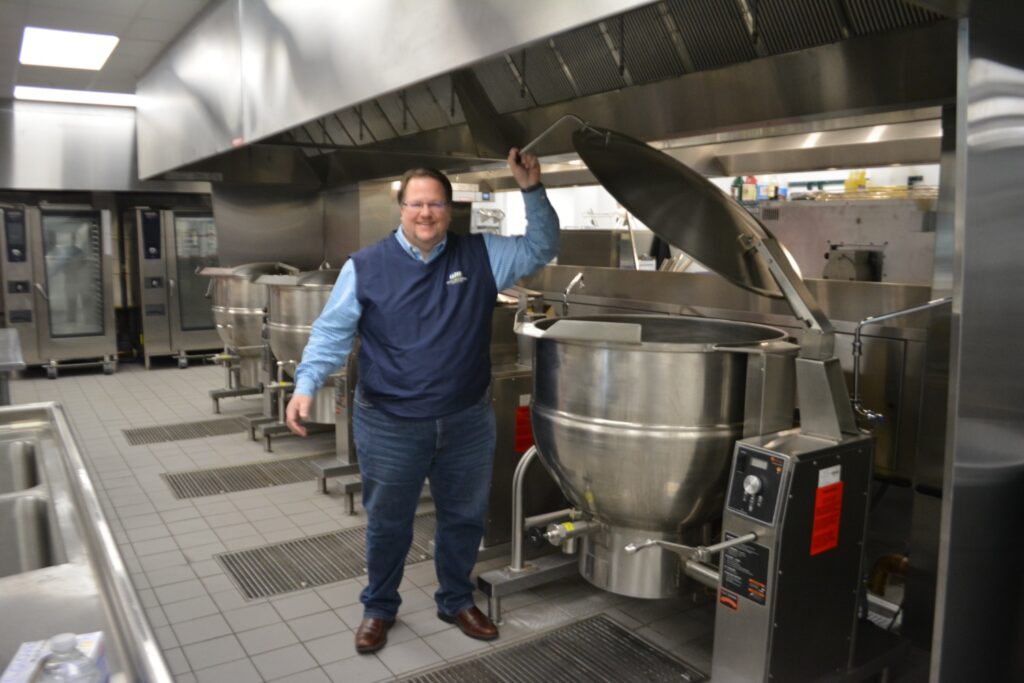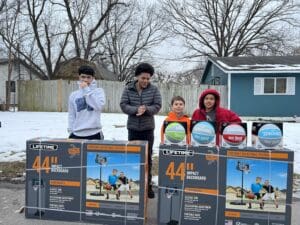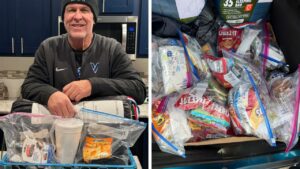Meals on Wheels has served the elderly and disabled for more than 50 years. What started as an outreach program by members of First Presbyterian Church in Tulsa in 1970 to serve meals to homebound prisoners, is now a multimillion non-profit organization that serves Tulsa and surrounding areas.
The Sapulpa Herald interviewed Director of Volunteer Services, Scott Copeland at the new 27,000-square-foot facility on East 51st in Tulsa.
“For about 32 years we were at a building near 31st and Garnett that was 6,000 square feet, it was a converted garage,” Copeland said. “We were able to carry out the mission for Meals on Wheels there for that long.”
On October 7th, Meals on Wheels moved into their current 27,000 sqft facility. “(This) will be our home for the long haul.”
The $15 million facility was funded by donations from foundations and individuals.
Meals on Wheels is most known for their core mission of delivering meals to the elderly and disabled, but it’s far from the only service they provide.
“We say ‘more than a meal,’ and that means that we have several wraparound services,” said Copeland.
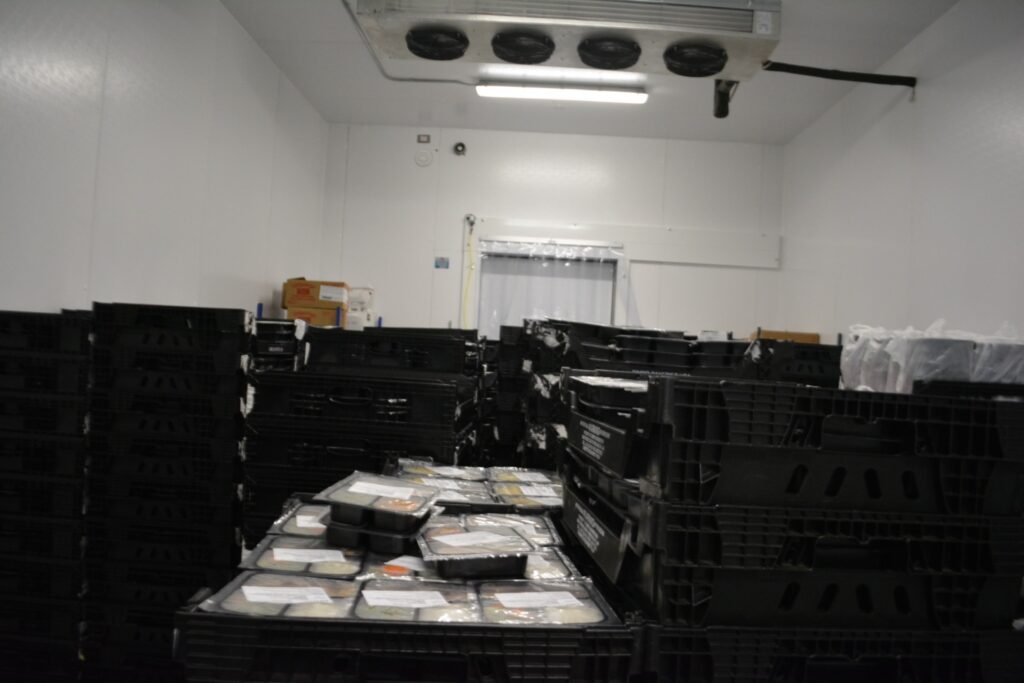
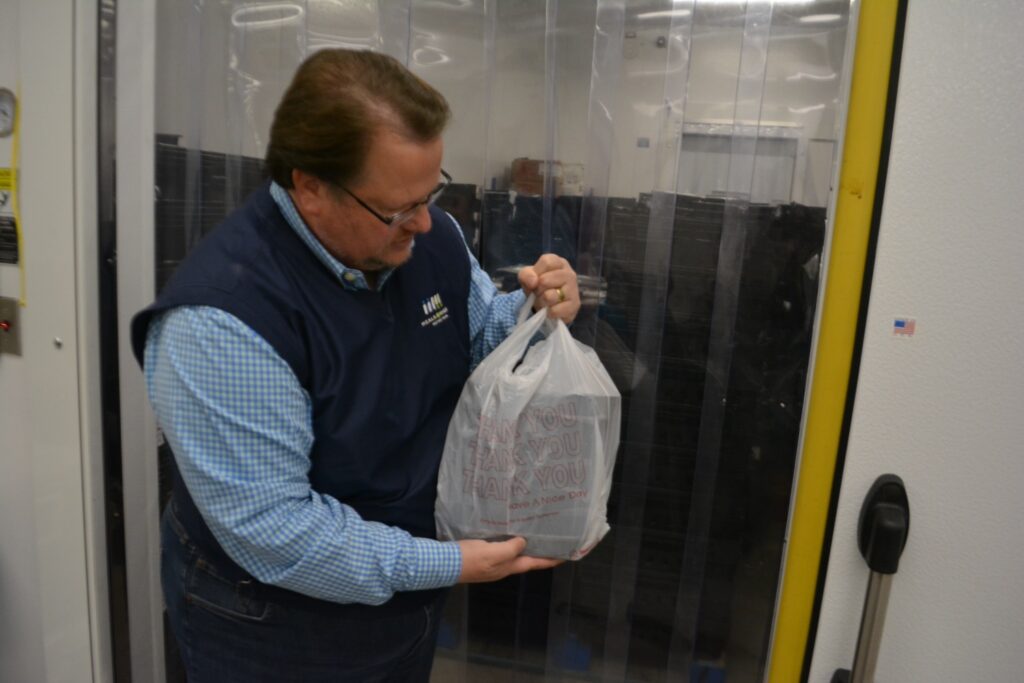
Some of those services include a home safety program that provides simple minor repairs, or a program for pets called “PAWS” (Pets Assisting Wellness in Seniors), providing food and supplies for clients’ furry companions.
MOW also provides warming kits that contain blankets, scarves, hats, and gloves. They also provide a “blizzard box” which contains non-perishable food such as energy bars.
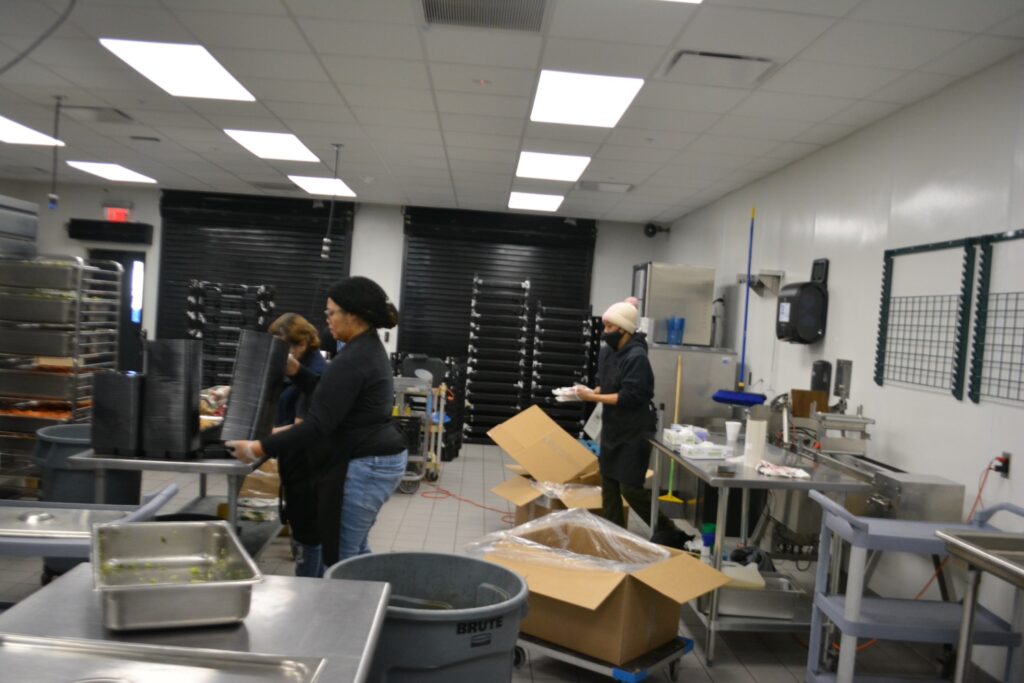
“(It’s about) just letting someone know they are not forgotten,” Copeland says. “We fight two things here: we fight hunger and we fight isolation, and both of those are a hundred percent curable through our volunteers.”
“With meal delivery, we also have the opportunity to check in on a client and see how their well-being is. We also have another program that is called wellness check callers. That is all they do, check on someone and give them a phone call. A volunteer can do that from the comfort of their own home at a certain time or a time that can be scheduled.”
Copeland says that during the week a volunteer might call someone once or twice, “just to check on them and let them know they are remembered and see how they are doing.”
Copeland pointed out that if a volunteer sees something is wrong while at the home of a client, they will notify an emergency contact of that person, and if it is a serious situation, the volunteer will then call 911.
“We had a driver delivering a meal to a client just a few months ago, delivered the meal, went to the door, and the client, she didn’t answer the door right away but they could see her through the window. She was still in a chair and was looking right at them, having trouble getting up, struggling to move, so they called her daughter who was an emergency contact and they called 911.”
The quick thinking of the volunteer mostly likely saved that woman’s life because she had suffered a stroke.
Copeland gave a tour of the 8,500-square-foot state-of-the-art kitchen facility. The modern equipment was most impressive. There are 80-quart stainless steel tilt kettles for cooking vegetables. Everything is well organized and there is an efficient flow of work, from cooking to preparing it to place in the trays, and finally wrapping and freezing it to be placed in walk-in freezers, then in coolers to be sent to distribution centers where drivers load the meals into thermal bags for delivery.
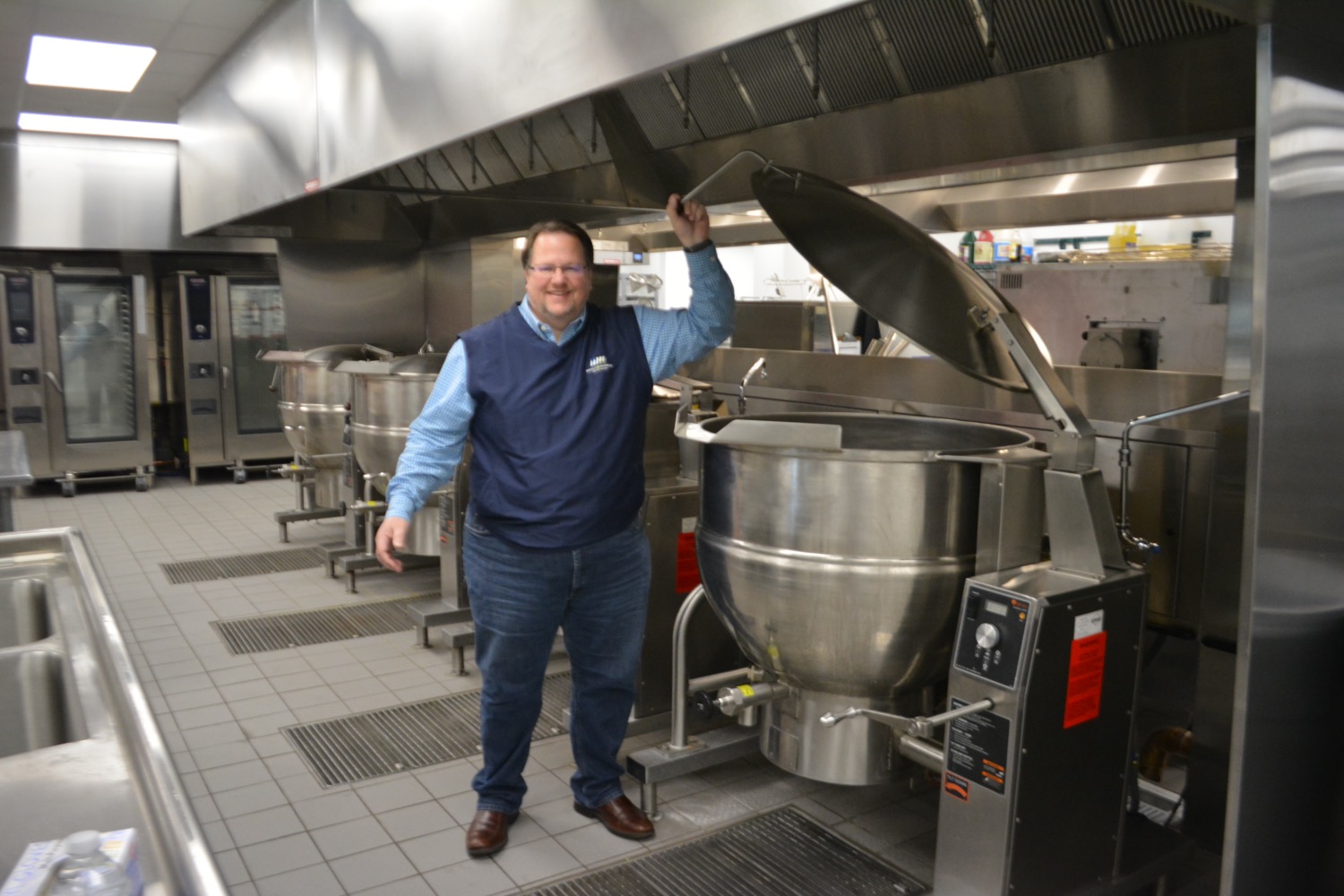
The entire building is beautiful and functional, providing a comfortable workspace for volunteers and staff. A training room holds 100 people and is equipped with an LCD projector, a pull-down screen, and even a webcam to allow remote sessions.
This facility is open to any business or organization that wishes to utilize this training room.
Mr. Copeland said that the pandemic posed a number of problems.
“Our volunteer base is being built back up on this side of the pandemic,” he says. “But I think that the challenge was that some of our people, they have moved, their schedules have changed, they are volunteering somewhere else, or they may have passed on.”
Copeland said they need 800 more volunteer meal delivery drivers to be back where they were before the pandemic. The organization also needs volunteers for other positions.
Regarding Sapulpa in particular, Copeland says, “we have 88 Sapulpa Meals On Wheels clients that receive meals each week. That’s about 620 meals a week that are delivered to Sapulpa residents. Eighteen of those are still in need of volunteer drivers. That is under our current model of one day a week.”
Last year MOW had seventeen home safety projects for Sapulpa residents, as well as 39 pets that are served with clients in their PAWS program. Copeland stated that seven days’ worth of meals are delivered at each visit.
Anyone wishing to volunteer can contact Scott Copeland at 918-922-8428 or go to mealsonwheelstulsa.org.
(Photos by Charles Betzler).

